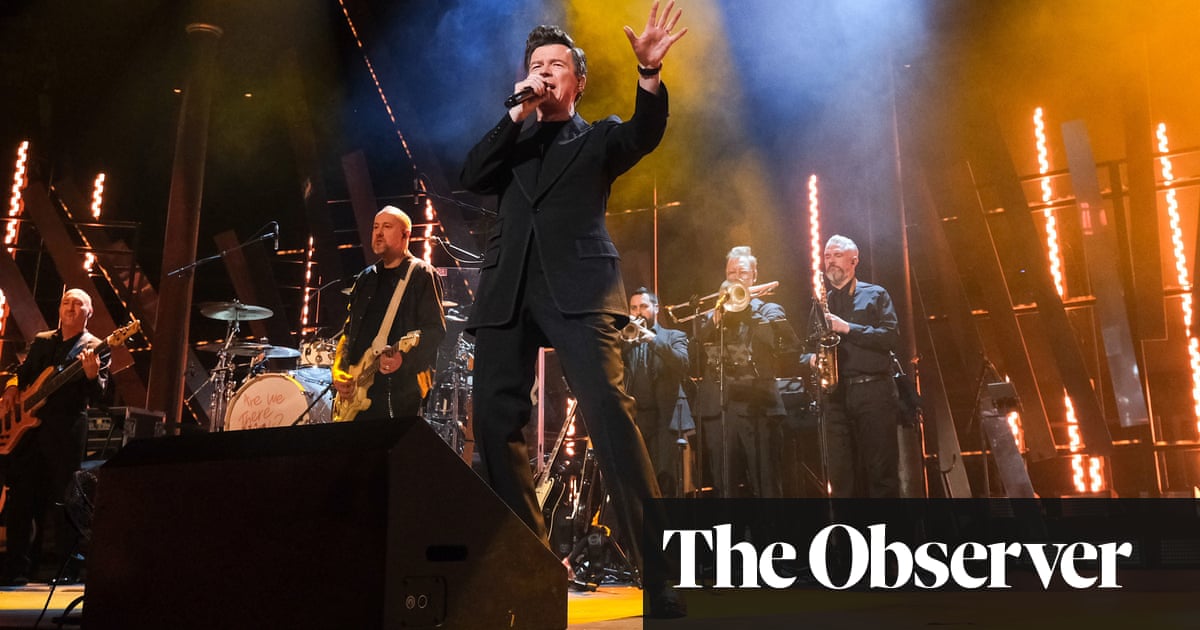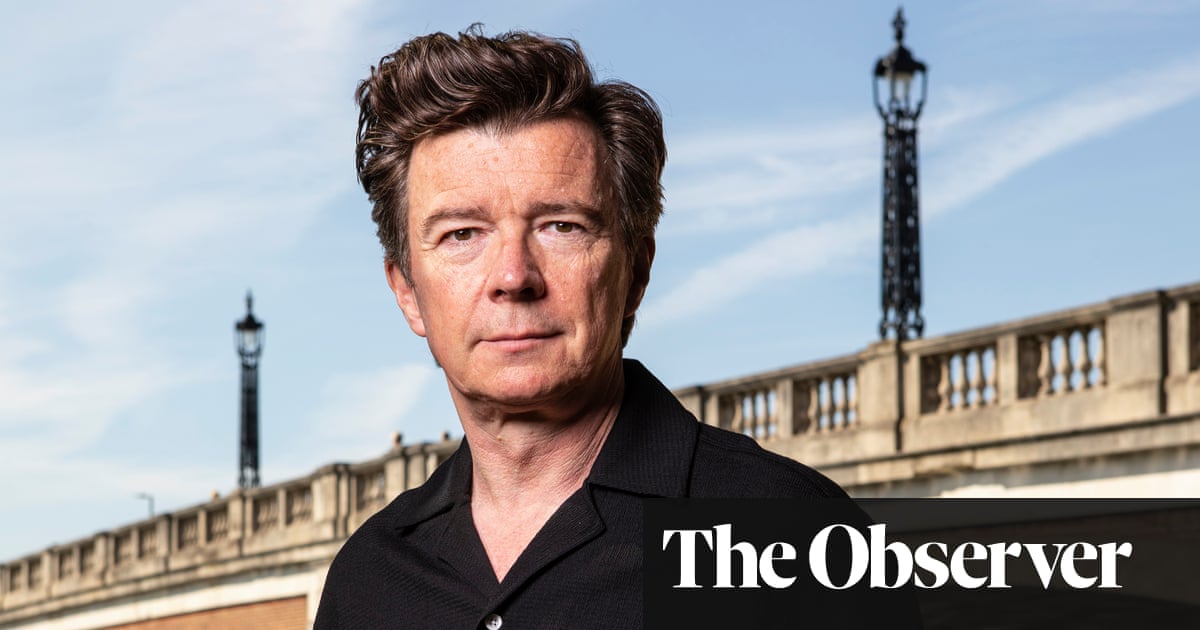
Some may think: why is the BBC welcoming in 2024 with “Mr 1987”? Though that suggests they missed the memo about the spectacular revival of Rick Astley. On Sunday night, 1980s pop star Astley will host BBC One’s New Year’s Eve show from the Roundhouse in Camden, north-west London, following in the footsteps of Sam Ryder and Years & Years, fronted by Olly Alexander.
Stars come back. It’s what they do. But few manage to do it in a way that makes them look infinitely cooler than before. As Astley, 57, continues to ride the Rickrolling phenomenon (more of which anon), his 2023 has been stellar.
His recent album Are We There Yet? reached No 2. Among other festival appearances, he played Glastonbury in 2023. Twice. First, on the Pyramid stage, including Harry Styles, Chic and AC/DC numbers among his own surprisingly diverse array of hits.
Then on the Woodsies stage, performing an entire 16-song set of Smiths covers with Stockport indie band Blossoms (a show they had played only twice before); the tunes were performed with such heartfelt love and respect (not to mention skill and brio), that Worthy Farm melted.
How did this Astley “cool” thing happen? In the 1980s, working with hit factory Stock Aitken Waterman (SAW), Astley was deemed the Beelzebub of manufactured pop. He was widely derided as an industry “puppet” and SAW teaboy, a myth born out of Lancashire native Astley (who was originally a drummer and briefly a studio technician) being nice enough to make people a cuppa in the studio.
It didn’t matter that he was a huge success: his 1987 hit Never Gonna Give You Up won best single at the 1988 Brit awards, topping the charts in 25 countries, including the US; his debut album, Whenever You Need Somebody, sold more than 15m copies. Nor did it count that the video for Never Gonna Give You Up, with Astley exuberantly boogieing in a trenchcoat like a budget Jim Kerr from Simple Minds, is the sweetest, most quintessentially 80s thing ever.
The majority of artists spend parts of their career flailing in the doldrums of critical or commercial Siberia, and Astley proved no exception. There was an attempt at post-SAW reinvention, starting with the 1991 album Free: Astley adorned the cover with long hair (think Michael Hutchence after a bad blow-dry) and a “serious artist” pout.
Though continuing to write songs (he has a home recording studio), he ended up taking a lengthy break to raise his daughter with his Danish film producer wife, Lene Bausager (who now manages him), until starting to tour again in 2004.
There can be no serious discussion of Astley’s resurgence without mentioning Rickrolling: the unstoppable 00s internet meme, whereby users are duped into clicking a link and watching the video of Never Gonna Give You Up.
The official video has amassed nearly 1.5bn views on YouTube (Astley is the fourth 1980s artist to pass the billion mark, after Michael Jackson, a-ha and Guns N’ Roses). In 2008, a survey found that 18 million Americans had been Rickrolled.
Astley laughed off Rickrolling, hailing it as “brilliant” and “funny”. Also in 2008, he Rickrolled the Macy’s Thanksgiving Day parade in New York City with a surprise performance. He has said his personal favourite Rickroll is one where Barack Obama’s speeches are cut up to look like he’s singing the song.
In 2017, Astley appeared on stage with Foo Fighters (he’s covered their song Everlong) as they Rickrolled their own audience. In 2022, he said: “The video and the song have drifted off into the ether and become something else.”
It bears noting that, for an 80s kid, Astley is no slouch with social media. He danced about in a trenchcoat to launch “RickTok” on TikTok. He has filmed himself jet-washing his rubbish bins in a lilac suit and wellies, frugging to a Dua Lipa track.
He appears to instinctively understand how to be playful with new mediums while retaining a mature dad-rock vibe. Is this his secret: radiating an essence that’s so uncool, it turns the corner and becomes cool again?
Part of Astley’s appeal could be his “open book” public persona – the fanboy enthusiasm and humility (he reverently describes former Smiths guitarist Johnny Marr’s playing and technique as “like nobody else”), and the impression he gives of being one of modern pop’s rare guile-free zones.
While his Smiths covers have been called the “ultimate karaoke”(not to mention Morrissey-free, though Marr also offers that at his solo shows), people have noticed how Astley only covers songs he truly reveres. Unlike, say, the jaw-dropping wonder of Star Trek actor William Shatner’s take on Pulp’s Common People (duetting with Joe Jackson), there’s nothing left-field or startling about Astley’s tributes. Whether singing the Smiths’ Panic, or drumming to AC/DC’s Highway to Hell, he does it straight, applying his musicianship and deep baritone with the same care and emotion he gives his own material.
With tens of millions of units shifted, is Astley cannier than you’d think? He seems aware of the potency of the public goodwill showering on him: in January 2023, he sued the US rapper Yung Gravy (musician Matthew Hauri)for hiring a singer to imitate his voice on the track Betty (Get Money). The case was settled in September.
Certainly, Astley is enjoying a late-career sweet spot: working the lucrative heritage market with a package (original material and bravura covers) few others are offering in quite the same way.
Now here he is, ushering in the BBC’s new year. In some ways, this seems to be about Astley hitting the “national treasure” jackpot (Brits in particular love troupers and survivors). And beyond this, maybe something that goes back through the decades to the SAW recording studios, when the shy young technician and wannabe singer was offering to make the tea.
Perhaps Astley proves that nice guys don’t always come last.












